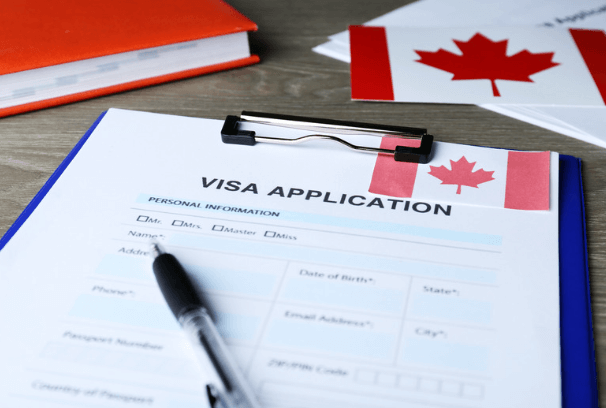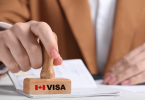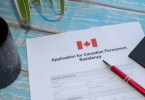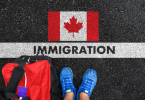Canada is a beautiful country with many attractions, such as Niagara Falls, the Rocky Mountains, and the vibrant cities of Toronto, Montreal, and Vancouver. If you want to visit Canada for tourism, business, or family reasons, you may need a visitor visa, also known as a temporary resident visa (TRV).
A visitor visa is an official document that allows you to enter and stay in Canada for up to six months. However, not everyone needs a visitor visa to visit Canada. Some people are exempt from this requirement, such as citizens of visa-exempt countries, permanent residents of the United States, and certain categories of travelers.
In this blog post, we will explain how to apply for a Canada visitor visa, the requirements, and the steps involved in the process. We will also provide useful tips and resources to help you prepare your application and increase your chances of success.
Who Needs a Canada Visitor Visa?
To find out if you need a visitor visa to visit Canada, you can check the list of countries and territories whose citizens need a visa to enter Canada on the official website of Immigration, Refugees and Citizenship Canada (IRCC). If your country is not on the list, you are visa-exempt, and you only need a valid passport and an Electronic Travel Authorization (eTA) to fly to Canada.
However, even if you are visa-exempt, you may still need a visitor visa if you plan to travel to Canada by land or sea or have a criminal record or health issues that make you inadmissible to Canada. In that case, you will need to apply for a visitor visa and meet the eligibility criteria.
What are the Requirements for a Canada Visitor Visa?
To be eligible for a Canada visitor visa, you must meet the following requirements:
Have a valid passport or travel document
Have enough money to support yourself and your family members during your stay in Canada
Have no criminal or immigration-related convictions or violations
Have no health problems that could pose a risk to public health or safety
Have ties to your home country, such as a job, property, family, or social connections, that show you will leave Canada at the end of your authorized stay
Have a valid reason to visit Canada and comply with the conditions of your visa
Have an invitation letter from a Canadian host or proof of accommodation in Canada
Have travel insurance that covers medical expenses and repatriation in case of emergency
Have supporting documents that demonstrate your purpose of visit and your financial situation
How to Apply for Visitor Visa for Canada
There are two ways to apply for a Canada visitor visa: online or on paper. The online application is faster, easier, and more secure than the paper application. You can apply online through the IRCC website by creating an account and following the instructions. You will need to fill out an application form, upload scanned copies of your supporting documents, pay the application fee (CAD 100), and submit your application.
If you apply online, you may also need to provide biometrics (fingerprints and photo) at a designated service point in your country. You will receive an email from IRCC with instructions on how to do this after you submit your online application. The biometrics fee is CAD 85 per person.
If you cannot apply online, you can apply on paper by downloading the application package from the IRCC website and mailing it to the nearest visa office or Visa Application Centre (VAC) in your country. You will need to fill out the same application form as online and attach photocopies of your supporting documents. You will also need to pay the same application fee and biometrics fee as online.
Whether you apply online or on paper, you may be asked to attend an interview with a visa officer or provide additional information or documents to support your application. You should respond to these requests as soon as possible to avoid delays in processing your application.
How Long Does it Take to Process a Canada Visitor Visa?
The processing time for a Canada visitor visa depends on several factors, such as the volume of applications received by IRCC, the completeness and quality of your application, the country where you apply from, and the availability of biometrics services. You can check the current processing times for visitor visas on the IRCC website.
According to IRCC, as of September 2021, the average processing time for online applications is 17 days, and for paper applications is 30 days. However, these are only estimates and may change depending on the circumstances. You should apply for your visitor visa well before your planned travel date to avoid inconvenience or disappointment.
How to check your status and what to do after you get your visa
If your application is approved, you will receive a letter of introduction (a port of entry letter) and a visitor visa (a counterfoil) in your passport. The letter of introduction is not your visa, and you must show it to the border officer when you arrive in Canada. The visitor visa is a sticker that shows the expiry date and other conditions of your stay in Canada.
If your application is refused, you will receive a letter of refusal that explains why your application was rejected. You can reapply for a visitor visa if you can address the reasons for refusal and provide new or additional information. You can also appeal the decision if you think there was an error or mistake in the assessment of your application.
After you get your visa, you should:
- Check the validity and conditions of your visa and make sure they match your travel plans
- Prepare for your arrival in Canada by reviewing the entry requirements and what to expect at the border
- Bring all the documents that support your purpose and duration of visit, such as your letter of introduction, invitation letter, proof of funds, and return ticket
- Follow the rules and regulations of Canada during your stay and respect the expiry date and conditions of your visa
What are Some Tips and Resources to Help You Prepare Your Application?
Applying for a Canada visitor visa can be a complex and challenging process. To increase your chances of success, here are some tips and resources that can help you prepare your application:
- Read the official guide for applying for a visitor visa on the IRCC website. This guide contains detailed information and instructions on how to fill out the application form, what documents to provide, how to pay the fees, and how to submit your application.
- Use the document checklist to make sure you have all the required documents for your application. The document checklist is part of the application package you can download from the IRCC website. It lists the mandatory and optional documents you need to provide depending on your situation and the purpose of your visit.
- Write a strong cover letter that explains your purpose of visit, your travel itinerary, your financial situation, and your ties to your home country. A cover letter is not a mandatory document, but it can help you present your case and persuade the visa officer that you are a genuine visitor who will respect the terms of your visa.
- Get an invitation letter from a Canadian host if you have one. An invitation letter is a letter written by a Canadian citizen or permanent resident who invites you to stay with them during your visit to Canada. The invitation letter should include information about the host, such as their name, address, phone number, relationship to you, and status in Canada. It should also include information about you, such as your name, passport number, date of birth, and duration of stay. The invitation letter should be signed by the host and accompanied by a copy of their Canadian passport or permanent resident card.
- Get travel insurance that covers medical expenses and repatriation in case of emergency. Travel insurance is not a mandatory document, but it is highly recommended for visitors to Canada. Travel insurance can protect you from unforeseen costs and risks during your trip, such as illness, injury, theft, or cancellation. You can compare and buy travel insurance online from various providers, such as CoverMe, iVisa, or Canadim.
- Check the status of your application online through the IRCC website. You can use the online tool to track the progress of your application and see if there are any updates or requests from IRCC. You will need your application number and date of birth to access this service.
- Prepare for an interview with a visa officer if required. An interview is not a common step in the visitor visa process, but IRCC may request it in some cases to verify or clarify some information in your application. If you are asked to attend an interview, you will receive an email from IRCC with the date, time, and location of the interview. You should bring your original passport and any other documents that may be relevant to your application. You should also dress appropriately and answer the questions honestly and confidently.
Conclusion
We hope this blog post has given you some useful information and guidance on how to apply for a Canada visitor visa. If you have any questions or concerns about your application, you can contact IRCC through their website or call center. You can also consult a licensed immigration consultant or lawyer who can assist you with your application and represent you before IRCC.
We wish you all the best in your journey to visit Canada!






